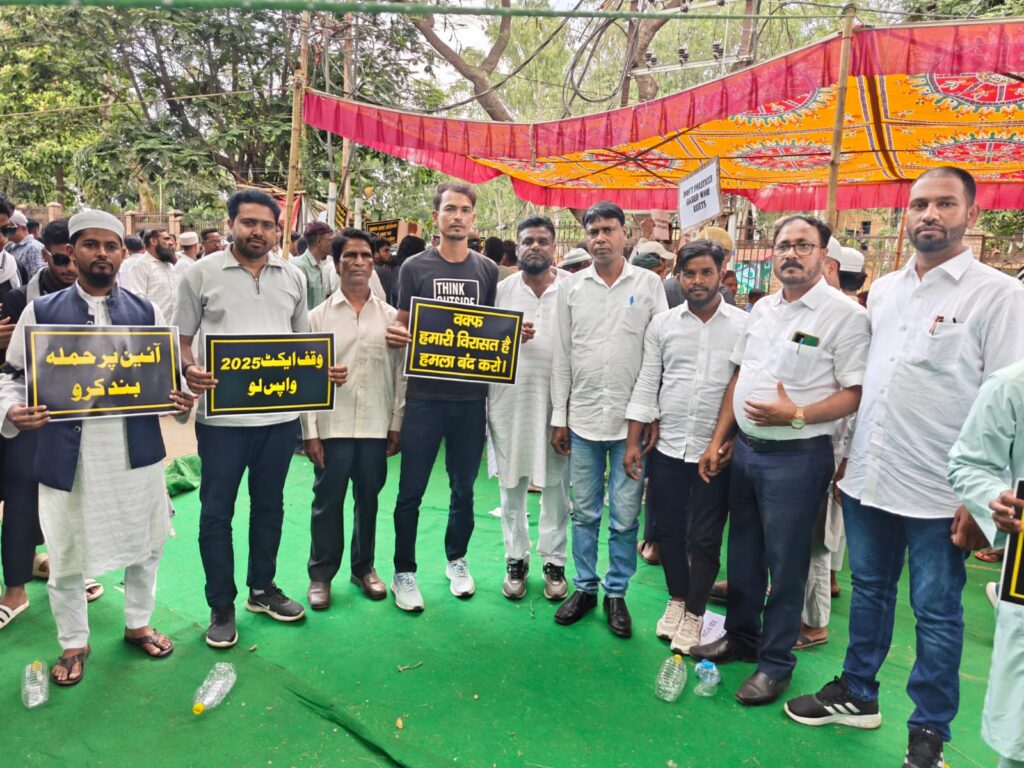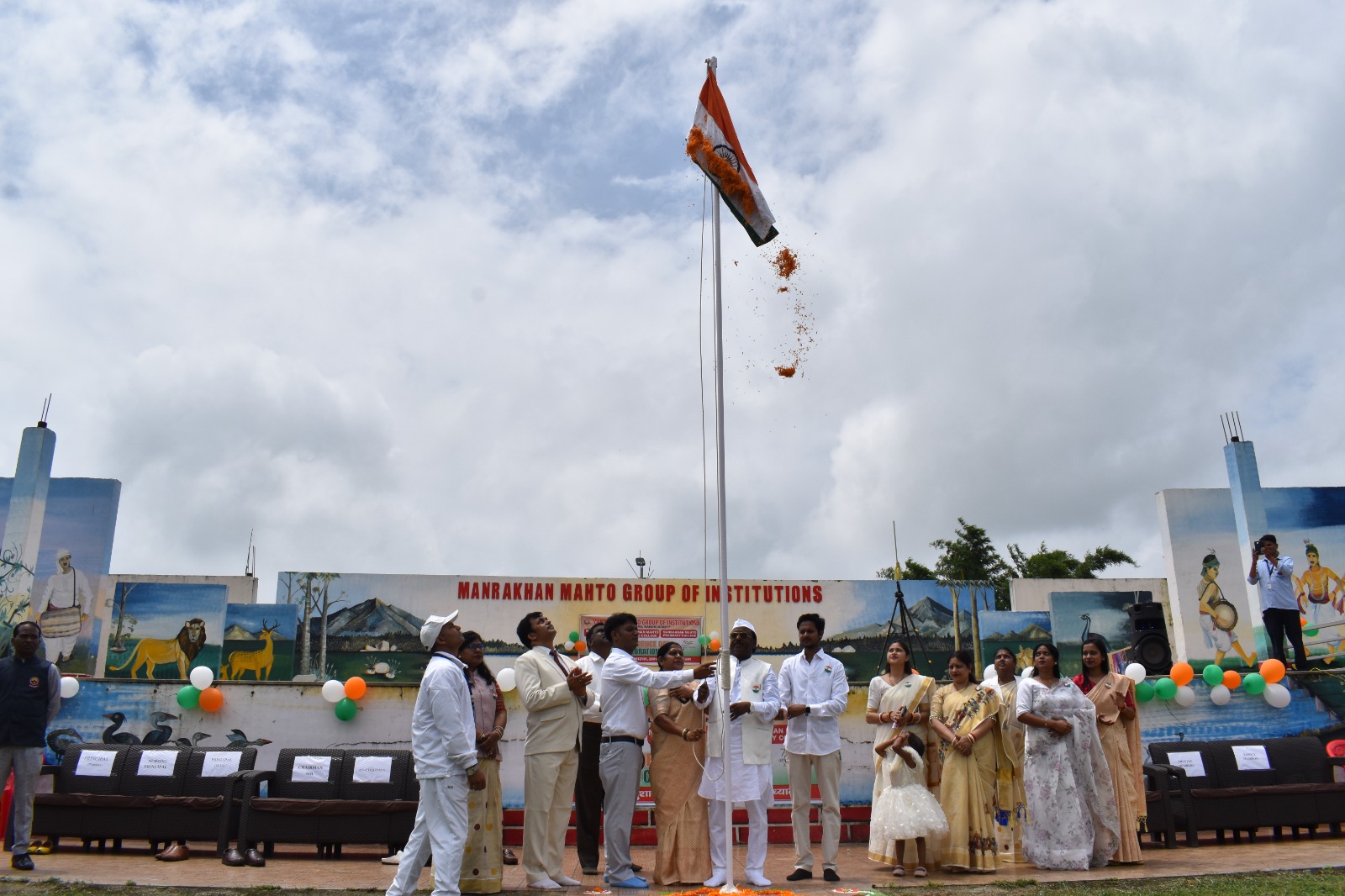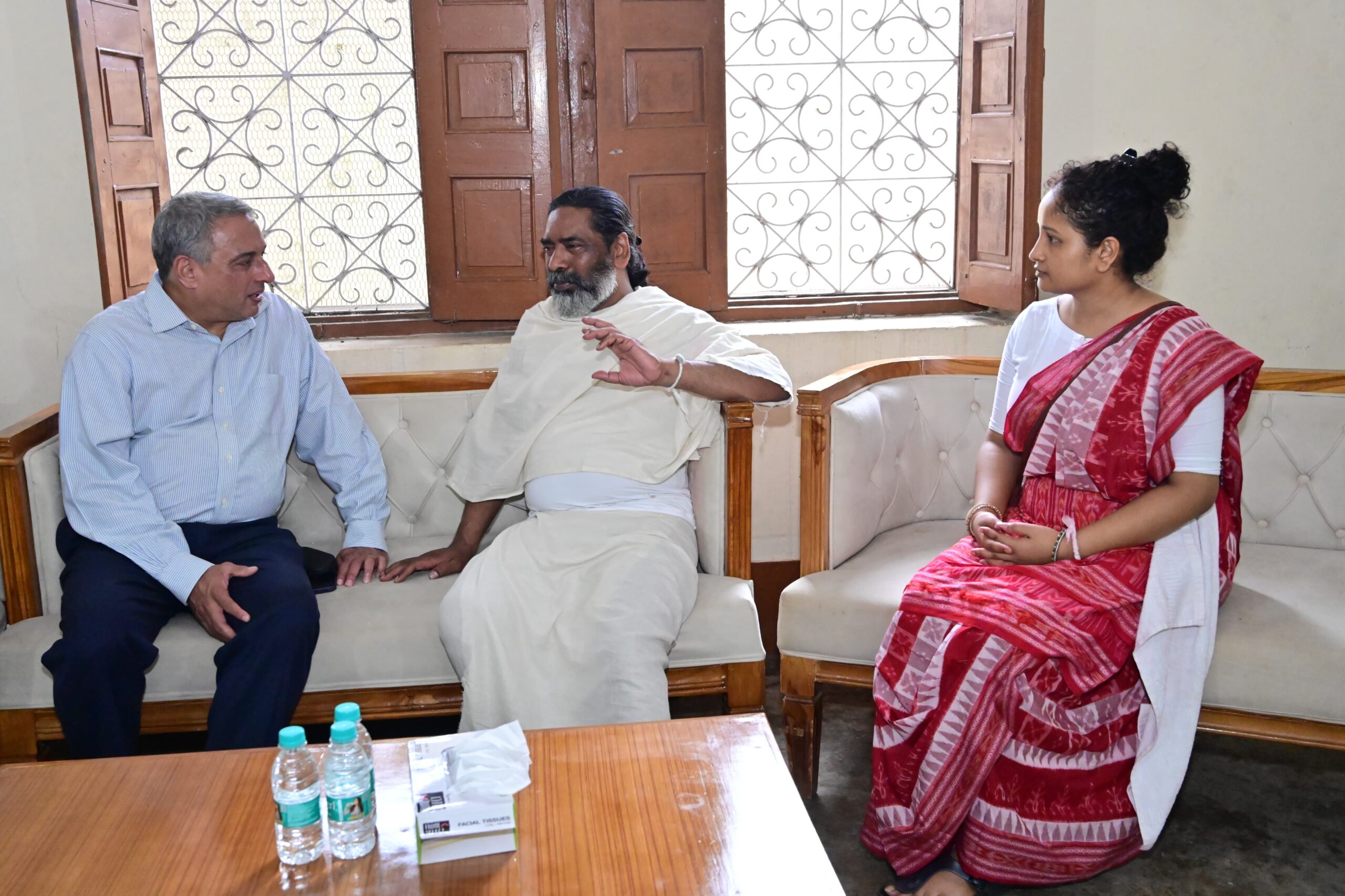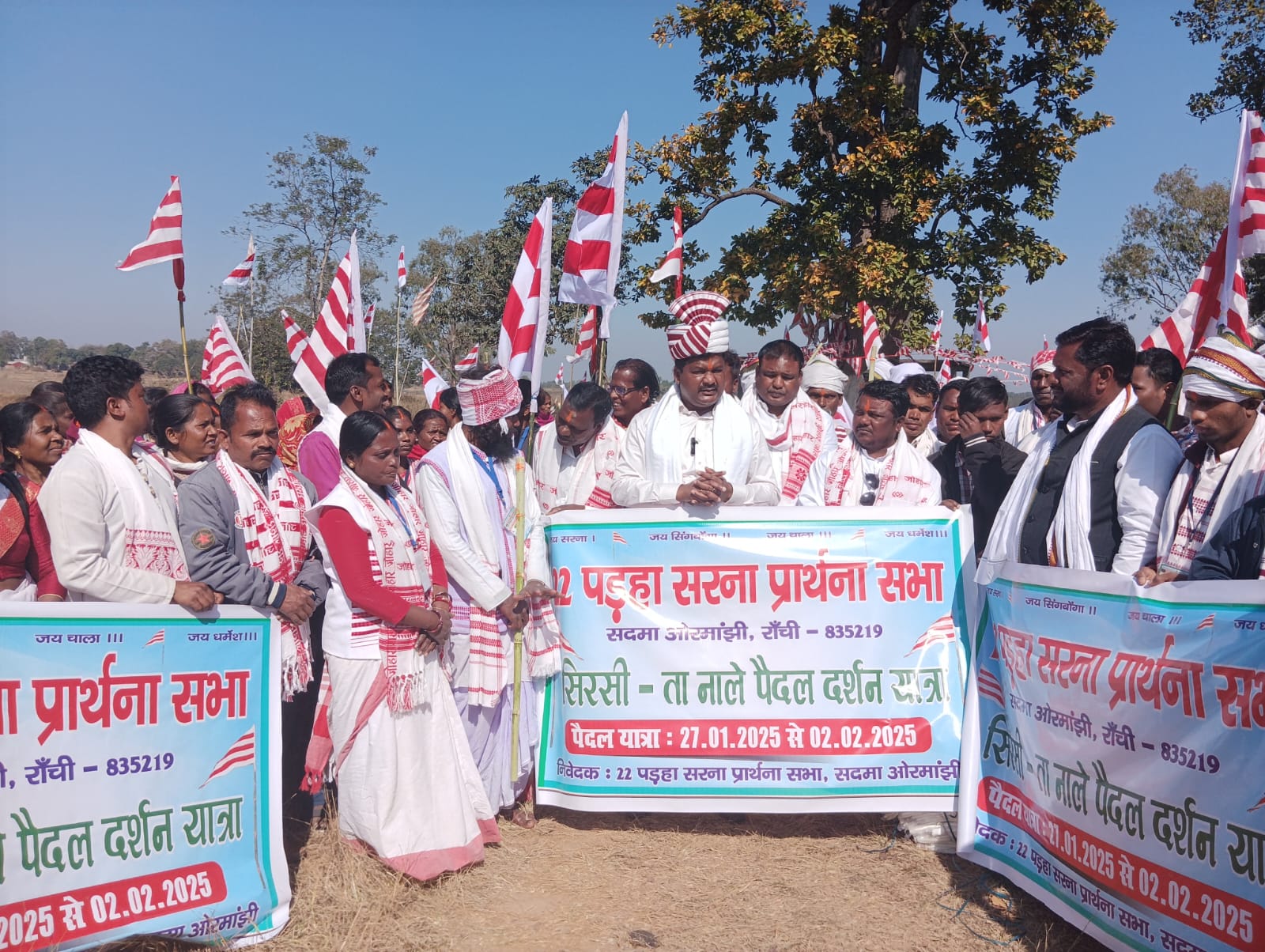Waqf Amendment Act 2025 is Unconstitutional: S. Ali
Mass Gathering at Raj Bhavan: Protesters Raise Placards Against Waqf Act Amendment
Ranchi: A massive protest was organized on Sunday in front of Raj Bhavan, Ranchi, under the leadership of the All Muslim Youth Association (AMYA) against the Waqf Amendment Act 2025, which was passed by amending the Waqf Act of 1995 by the Central Government.
Thousands of people from various blocks of Ranchi district took part in the demonstration, including representatives of Anjumans, social organizations, and religious bodies such as Idara-e-Shariah, Imarat-e-Shariah, Jamiat Ulama-e-Hind, Central Anjuman Kanke, Block Anjuman Ratu, Anjuman Islamia Mandar, All Jharkhand Ekta Manch, Saher Anjuman Nagri, and Momin Chaurasi Panchayat. Protesters held placards in their hands and raised slogans, terming the amendment an attack on the religious rights of minorities.
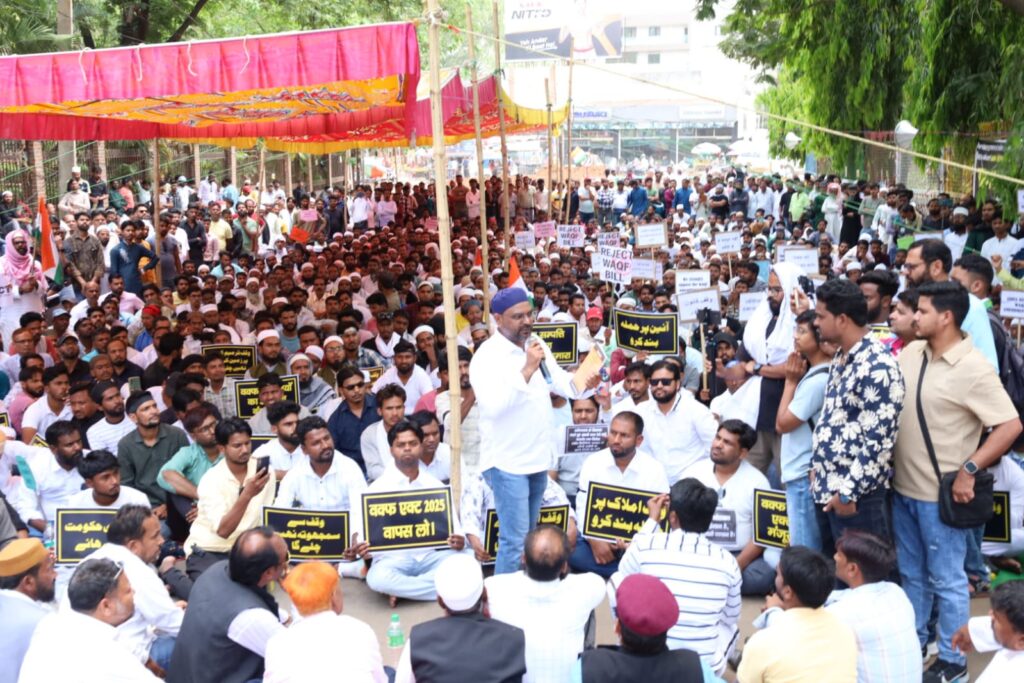
Leading the protest, AMYA President S. Ali said:
“The Waqf Amendment Act 2025 was passed using the government’s parliamentary majority without any consultation with the Muslim community or consideration of the recommendations made by the Joint Parliamentary Committee (JPC). This law violates the religious autonomy and fundamental rights of Muslims.”
He further stated that across Jharkhand and the country, Waqf properties—such as mosques, madrasas, Eidgahs, graveyards, shrines, hospices, inns, shops, houses, and agricultural lands—were donated by ancestors of the Muslim community as per Islamic tradition. Many of these properties were also gifted by kings, nawabs, and landlords through oral declarations or on plain paper, and they have always been used for religious purposes.
S. Ali added that if the government had concerns about mismanagement, encroachment, or lack of income from these properties, it could have introduced reforms within the existing Waqf Act of 1995 instead of enacting the new amendment. He alleged that the 2025 amendment directly violates Articles 14, 25, 26, and 29 of the Indian Constitution.
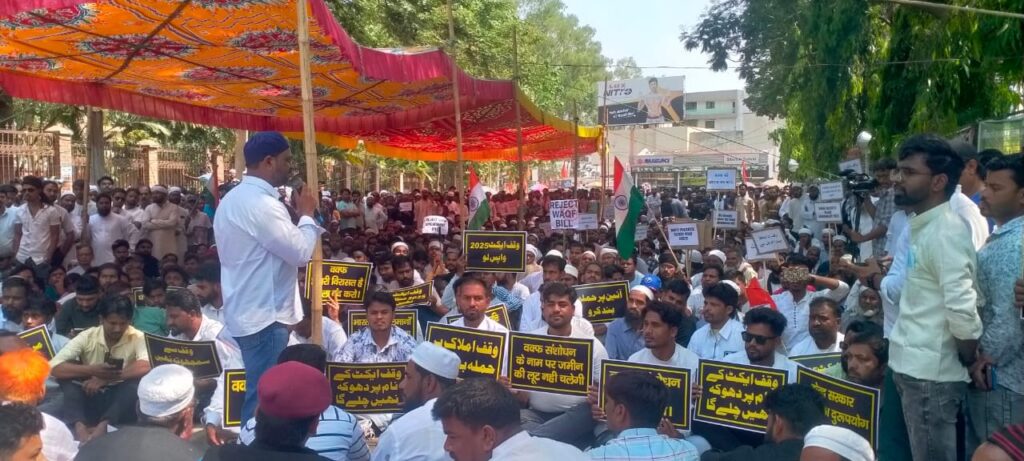
He also expressed serious concern about the inclusion of non-Muslims as members of Waqf Boards, calling it interference in the independent management of Muslim religious properties. He questioned why, unlike Waqf Boards, religious trusts of other faiths—such as Hindu Religious Endowment Boards or Sikh Gurdwara Committees—are allowed to have only members of their respective religions.
Among the key speakers addressing the gathering were Dr. Asgar Misbahi, Nazim-e-Ala Qutubuddin Rizvi, City Qazi Maulana Suhaib, Maulana Talha Nadvi, senior advocate Mukhtar Khan, Deepu Sinha, Praveen Peter, Advocate Shakil Parvez, Rezaullah Ansari, Azhar Khan, Pappu Gaddi, Nurullah Nadvi, Former Deputy Pramukh of Ormanjhi Muntazir Ahmed Raza, Ashfaq Khan, Ataullah Ansari, Irshad Imam, Zaheer Mansoori, Hafeez Jan Mohammad, Maulana Safiullah, Ziauddin Ansari, Mohammad Furkan, Naushad Alam, Iqbal Khan, Latif Alam, Sabdul Malik, Gufran Ansari, Shahid Afroz, Imran Ansari, Ikram Hussain, Isme Azam, Abdul Ghaffar, Aftab Alam, Javed Ansari, Mohammad Aurangzeb Alam, Sajid Umar, Modassir Ahrar, Maulana Fazlul Qadir, Abdul Majeed, Anjum Khan, and Tahmeed Ansari, along with thousands of other attendees.
